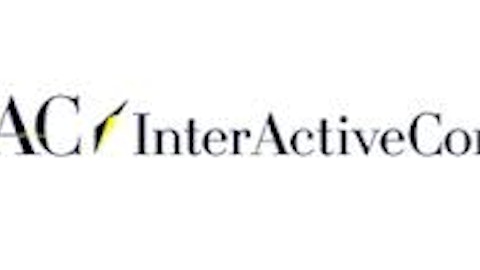Corsair Capital Management is a New York-based value-driven hedge fund with a 16-year track record in investing in value stocks and public equity markets across the globe, with an emphasis on the US and Canada. It’s founded by its portfolio managers Jay Petschek (pictured below) and Steven Major back in May 2002, and since then the fund manages client focused equity portfolios.
Mr. Jay Petschek holds a B.A. in Applied Mathematics from Harvard College and an M.S. in Management from the Sloan School of Management, M.I.T. He has a vast professional experience in corporate finance which he gained while working in Ladenburg Thalmann & Co. Inc. for more than a decade. While there, he served as Director of the research department for two years, and also a Senior Managing Director. Prior to that, he worked at the corporate department at Bankers Trust Company as an Assistant Treasurer until 1984. Six years later he founded the predecessor to Corsair Capital Partners, L.P. He’s a Director of Dab-O-Matic Corp., Recognition Media LLC, and Global Opportunity Partners Ltd. Also he was Director of Resource Recycling Technology Inc.
After obtaining a B.A. in English at Yeshiva College in 1990, Mr. Steven Major worked in the Investment Banking Division of Goldman, Sachs & Co for two years, as an Analyst. In 1994 he received an MBA in Finance from Columbia Business School. At the time he was working at Oppenheimer & Co., where he also served as a vice president. While there he was focused on sell-side equity research covering a wide range of companies that had emerged from bankruptcy or a general restructuring process. Prior to co-founding Corsair Capital Management, Mr. Steven Major was a portfolio manager and a managing director in the Asset Management Department of Ladenburg Thalmann & Co. for five years.
As an event-driven and value-oriented, long/short equity hedge fund, Corsair Capital Management builds its investment strategy around companies going through structural and (or) strategic change. In a process of determining potential companies worth investing in, the fund uses a selective approach and fundamental research while paying particular attention to potential disparities that might occur regarding a company’s price and its intrinsic value. Being value investors, the fund’s portfolio managers are guided by three principles when investing – staying ahead of inflation and the effect of taxes when increasing capital, retaining a diversified portfolio while taking wise risks and being aware that a good investment is both hard to find and needs time to get results. After all, investing is “a marathon and not a series of consecutive sprints,” as Corsair says in one of its investor letters. Besides investing in publicly – traded equity securities, its Private Funds invest in debt and hybrid securities, as well as in the securities of foreign issuers. As for other Corsair Capital funds, their portfolios are usually comprised of core positions in 20-30 companies and smaller positions in 50-100 companies, which are nothing else than near-term trading opportunities. As for its Corsair Select fund’s portfolios, they are concentrated in the core positions of the Corsair Capital funds. In addition, Corsair Select’s 2018 performance was a bit disappointing since the fund lost 4,.5% until late-June, according to the Corsair Capital Management’s Q2 investor letter.
In addition, this year hasn’t been prosperous for its Corsair Capital Partners L.P. fund either, since the fund lost 0.89% through October 31. Moreover, the fund’s returns went up and down several times over the last five years. The best return of 15.21% was recorded in 2013. However, in 2014 the fund returned only 4.45%. This falling trend continued in 2015 as well, when the fund lost 7.48%. Surprisingly, it has made a solid comeback returning 7.24% in 2016, and 12.53% in 2017, only to have another down year in 2018, as we already mentioned. Corsair Capital Partners L.P. had a total return of 2377.29%, a compound annual return of 12.26% and its worst drawdown was 25.66. As of March 2018, Corsair Capital Management had total discretionary assets under management of around $889.73 million.
So, does it make sense to follow hedge funds like Corsair Capital? We’ve uncovered a reliable way to consistently beat the market by using these 13F filings and investing in only the top consensus picks of the 100 best performing hedge funds each quarter. Insider Monkey’s flagship “Best Performing Hedge Funds Strategy” has returned 78.4% since its 2014 inception (through December 3), beating the market by over 18 percentage points. Check out a detailed analysis of Insider Monkey’s performance and past quarterly stock picks for all the details. Our newest picks were released last month and outperforming the market by a large margin; don’t miss out!
At the end of the third quarter, during which Corsair Capital Management added 3 new positions and dumped 8 companies, its 13F portfolio was valued at $435,07 million. Read about the most important portfolio changes the fund made as well as its biggest gainers and decliners during the third quarter of 2018 on the next page.
As of September 30, the most substantial contributors to the fund’s portfolio were Interactivecorp (NASDAQ:IAC), a New York-based holding company and owner of more than 150 brands worldwide, mostly in media and Internet, and Nort Carolina-based supplier of highly engineered products and technologies, SPX Corp (NYSE:SPXC). The fund owns 149,491 shares of Interactivecorp (NASDAQ:IAC) worth $32.39 million, after decreasing its stake in the company by 14%. The company also found its place among 25 Stocks Billionaires Are Piling On, while it’s quite obvious that hedge funds are fond of its stock as well. Currently, the company is trading at price-to-earnings (PE) ratio of 35.82 and it has a market cap of $14.85 billion. The closing price of the company’s stock was $167.80 on December 26th (Wednesday). When it comes to SPX Corp (NYSE:SPXC) the situation isn’t much different. The fund reduced its stake in the company by 5% to 801,716 shares valued at $26.7 million, accounting for 6.13% of the portfolio’s value. At the end of the third quarter, 11 smart money investors were long SPX Corp, up by one from the previous quarter.
Among the biggest third-quarter additions to Corsair Capital Management was position in TiVo Corp (NASDAQ:TIVO) a San Jose, California- based technology company whose 97,959 shares the fund purchased for $1.22 million, accounting for 0.28% of the portfolio’s value. It’s interesting to note that in its Q2 investor letter, the fund actually expressed doubts regarding investing in tech stocks. It’s left to be seen what will be the fund’s next move when it comes to this stock, knowing that Nasdaq 100 Index lost 8.7% in October, that way taking down stocks in the technology sector with it. On December 26th (Wednesday), TiVo Corp (NASDAQ:TIVO), closed at $8.75 in the latest trading session. Over the past three months, the company’s stock price has lost 37.27%. The company has a market cap of $1.16 billion.
The fund was quite optimistic when it comes to Ryman Hospitality Properties Inc. (NYSE:RHP), a hotel, resort, media, and entertainment company, and Willscot Corp (NASDAQ:WSC), a warehousing and storage services company, since it significantly increased its stake in the companies by 230% and 97%, respectively. As of September 30th, the fund owns 155,211 shares of Ryman Hospitality Properties Inc. (NYSE:RHP) worth $13.37 million, and 697,067 shares of Willscot Corp (NASDAQ:WSC) valued at $11,95 million. At the end of Q3, 24 smart money investors were long Ryman Hospitality Properties Inc., up by seven from the previous quarter, while 26 hedge funds owned Willscot Corp shares, down from 31 in the second quarter.
In the meantime, it seems that Corsair Capital Management lost faith in some of its other holdings. For instance, some of the biggest positions the fund decided to completely sell during the third quarter were in Houghton Mifflin Harcourt Co (NASDAQ:HMHC) whose 142,865 shares the fund previously held and Natus Medical Inc (NASDAQ:BABY), to whose 45,905 shares the fund said goodbye to.
Disclosure: None. This article was originally published at Insider Monkey.


